Sensory Parents, sidle up next to me, pull up a page, and settle in. I have something important to tell you about your children and their future. Are you listening closely, intently? This is something you may have felt flitting between your thoughts while watching your child in OT, like the quick pulse of a beating heart, or even as a doubt lurking in the dark shadows somewhere between your child’s last meltdown and their next shutdown. It’s undoubtedly something that’s startled you late in the evening, long after the entire neighborhood has been put to bed: what’s going to become of my child with Sensory Processing Disorder(SPD) as they grow up? Or rather, more importantly, will my sensory child be okay?
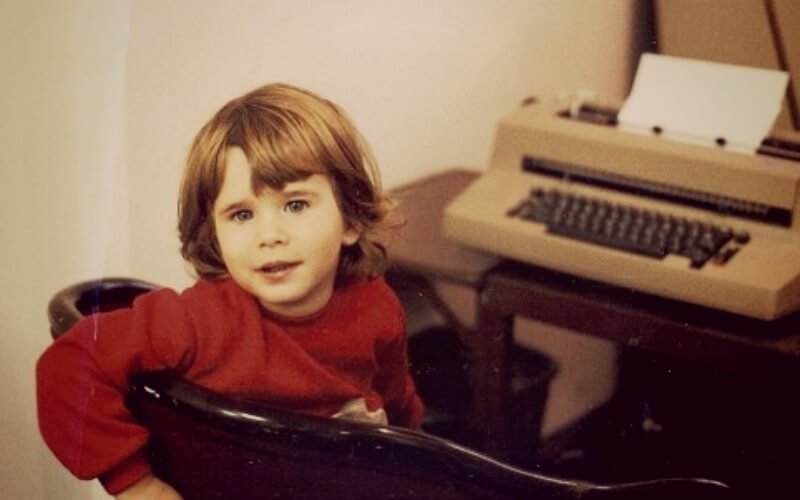
Disclaimer – My name is Rachel S. Schneider, and I’m a woman diagnosed with SPD in adulthood and sadly not a psychic. I can’t predict a winning pony, but I can say one thing for certain:
Your amazing sensory children are going to grow up to be equally amazing sensory adults.
I was born in the early 1980s and grew up during a time when few people discussed things like “sensory issues.” No one – not my parents, not my doctors, not my teachers – knew that my emotional and behavioral hypersensitivities were rooted in SPD, and so I grew up completely unaware that my struggles and differences had a name. What my life lacked in a diagnosis, it made up in familial love and support. My parents perpetually cheered me on and encouraged me to do my best in all areas of my life – something they still do to this day.
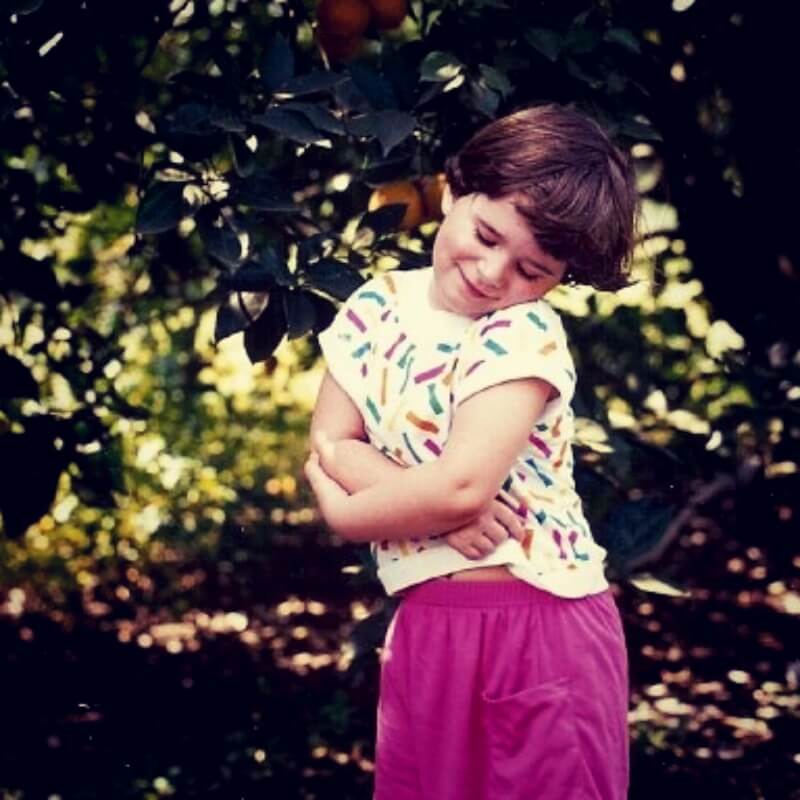
Naturally empathetic, vivacious, and loving, I was taught to use my keen sensitivities to read others and respond to their needs. In Kindergarten, I quickly became the BFF and protector of a wisp of a girl who, having been born incredibly premature, was often the unfortunate target of childish taunts. A few years later, at the age of barely eight, I joined my school’s Safety Committee, allowing me to help others feel secure as they moved through the elementary halls and playground – even as I, myself, often felt overwhelmed.
In high school, after being misdiagnosed with Panic Disorder (and while completely saturated with the endless fears of the things I’d yet to understand about myself and my perception of the world), I became the go-to pseudo-therapist for teen and ‘tween classmates and friends. It was one of those unofficial, unspoken things, but even my teachers knew that if one of their students were to burst into tears in class, they could nod in my direction, and I’d pull the tear-stained peer into the stairway for a quick confidence-boosting chat. I often bursted into tears in private.

As sensitive, picky, and particular as I was, especially out of eye- and earshot; as rigid as my still-undefined needs were; and as challenged as I often felt as I moved, dysregulated, between meltdowns and shutdowns years before I had a name for these episodes, I truly managed to excel in many areas of my life. I graduated from high school with an International Baccalaureate diploma, completed my B.A. in Psychology in three years, and went back to school for my M.A. I still take pride in the fact that I was never without a boyfriend, and my unyielding desire to love, nurture, and praise made me very popular with the bad boys and nice guys alike. I collected friends from many areas of my life who still accept me exactly as I am… unique.
These days, nearly six years after my SPD diagnosis, I am happily married to a man I fondly refer to as my “handler,” because his knowledge of SPD and understanding of my particular battery of sensory quirks and needs surpasses all but my own. I work as a copywriter in an HR department, merging my love of writing with my adoration of people. In my spare time, I passionately advocate for people like me – for people like your child. I blog and write articles about my innermost sensory struggles, and I even just had my first book published by Sensory World.
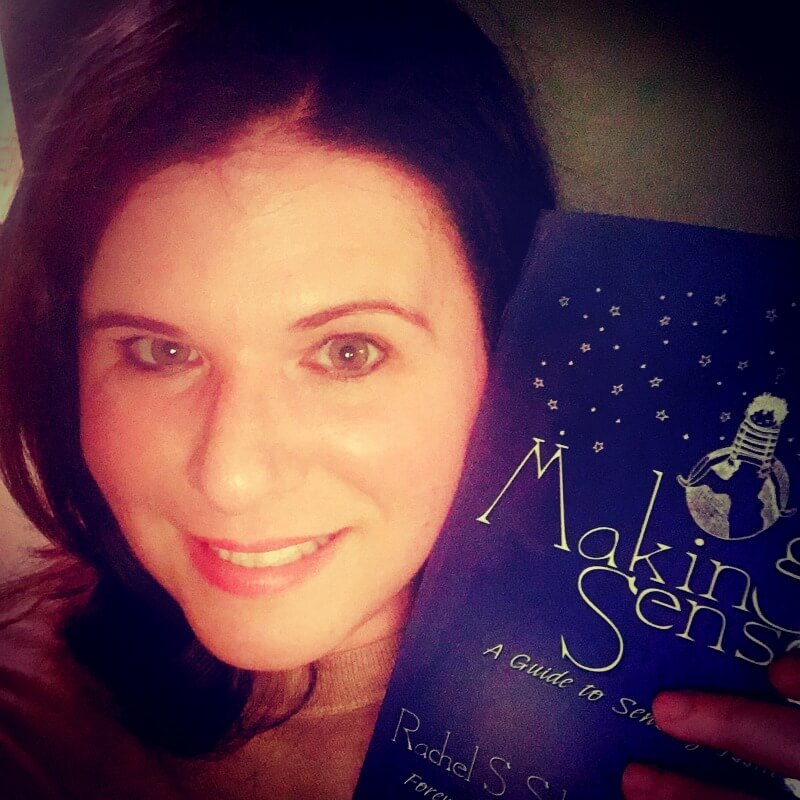
When people ask me why I do what I do for our community, I smile. I tell them that by revealing myself in my most raw state, by exposing the true soul of someone with SPD, I give people the chance to relate. When we relate to one another, we realize that we’re not alone, and we learn to stand together. We begin to share our stories without fear of ridicule or abandonment. We slowly learn to accept our sensory selves, our teens, and our children completely, without hesitation.
But I also do what I do to make up for lost time. I was 27 the first time I ever stepped foot into an OT’s office, and I was 27 the first time I ever heard the term “Sensory Processing Disorder.” I spent over two and a half decades of my life not knowing that my challenges were based on differences in my neurological makeup. For 27 years, I felt alone and isolated with my differences; even as I reached out to make others whole, I suspected that I was made up of some (thankfully temporarily) missing pieces. I am perpetually paying homage to the undiagnosed little girl inside of me.
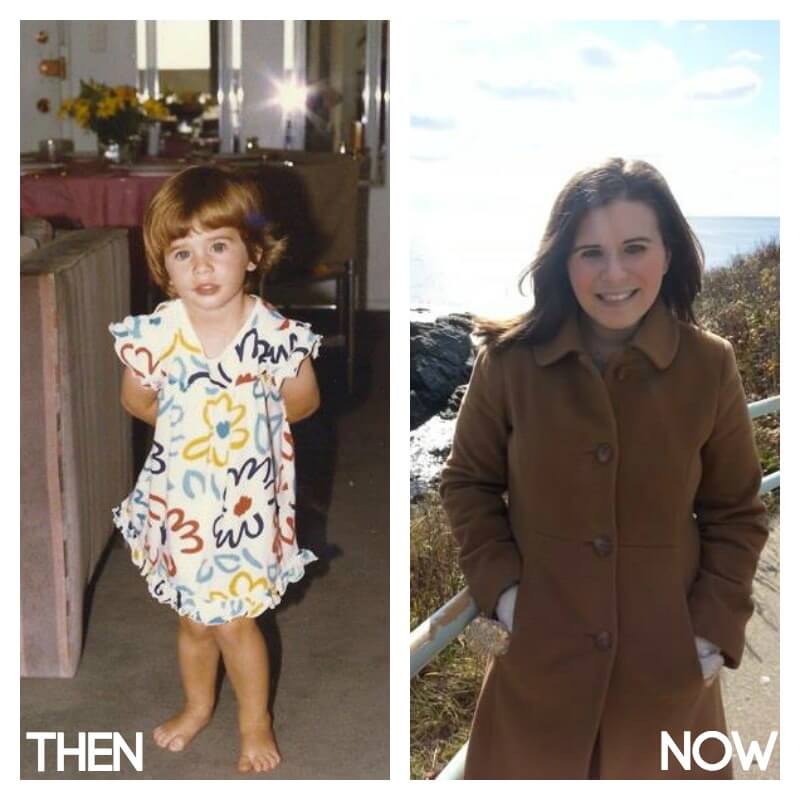
Will My Sensory Child Be Okay? You ask….
And this is how I know that your child will grow into an amazing adult: I like to think that I turned out more than okay, even given my delayed diagnosis. Sure, I live with SPD chronically, but I spend much of my days feeling happy and fulfilled. SPD hasn’t kept me from working, loving, or living – it’s only made me stronger and more self-aware. I have learned to respect my own boundaries and to push them sometimes, to celebrate even the smallest things that make me feel powerful.
Your children have a leg-up on me. They were born into this beautiful, changing world in which people are beginning to understand SPD. As they grow, they will be able to point to crucial scientific studies proving that their particular challenges have an identifiable, concrete root and a name. In school, teachers will have a better understanding of their needs and their strengths. Through OT, they will undergo some critical neurological rewiring that will have a dramatic impact on how they contend with sensory input in the future.
Most of all, they’ll have you much as I had my incredible parents, championing them through each iffy moment and gently coaxing them forward into tomorrow.
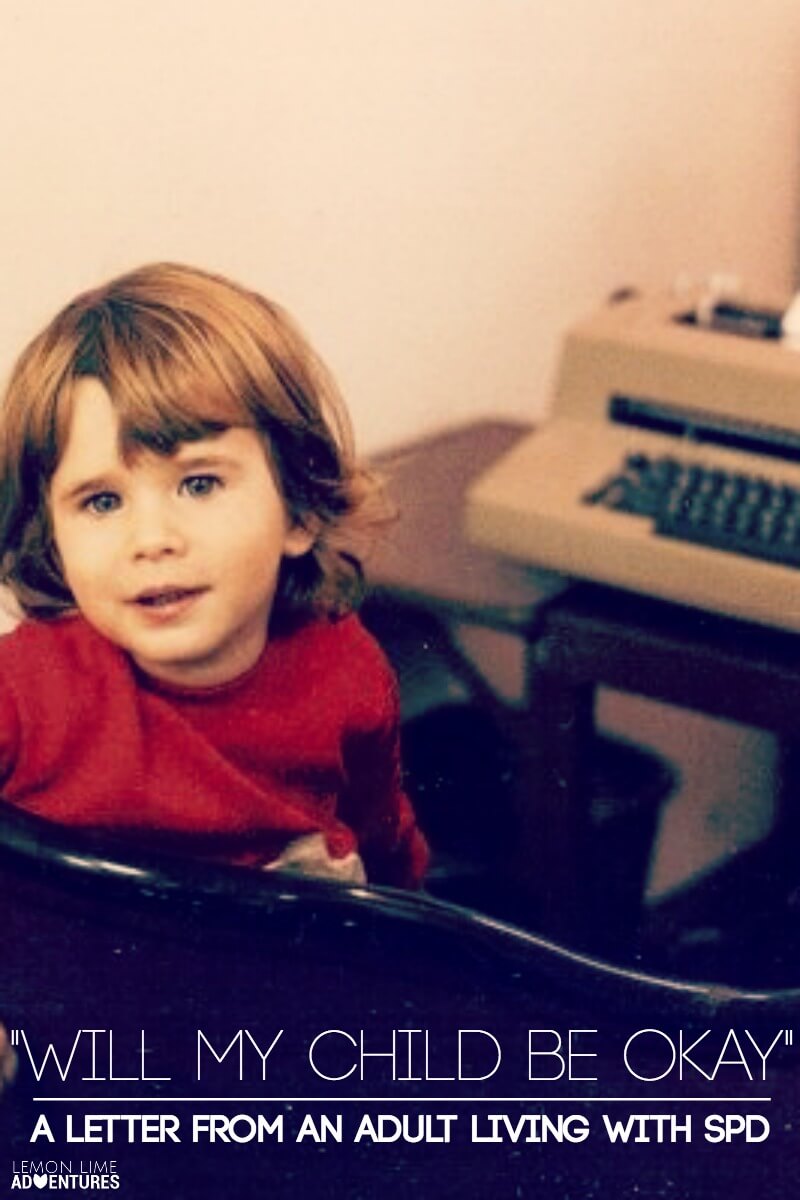
 Rachel S. Schneider, M.A., MHC, a delayed-diagnosis SPD adult and sensory community pillar, authors the popular sensory blog, Coming to My Senses. Her first book, Making Sense: A Guide to Sensory Issues, based on her viral article, The Neurotypicals’ Guide to Adults with Sensory Processing Disorder, was published by Sensory World on February 15th, and is now available on Amazon and Barnes & Noble.
Rachel S. Schneider, M.A., MHC, a delayed-diagnosis SPD adult and sensory community pillar, authors the popular sensory blog, Coming to My Senses. Her first book, Making Sense: A Guide to Sensory Issues, based on her viral article, The Neurotypicals’ Guide to Adults with Sensory Processing Disorder, was published by Sensory World on February 15th, and is now available on Amazon and Barnes & Noble.
For More Adventures in Sensory Processing:
More Resources For Dealing with Sensory “Issues”
To help you remember some of these strategies and understand sensory behavior and what to do in the moment, I’ve put together this amazing poster set on how to understand your child’s sensory struggles and discipline sensory meltdowns.
These posters give you tips on how to help your child regulate their sensory needs, and identify what your child’s behavior is really telling you!
There’s also a list of 7 common myths about sensory behavior. I dispel these misconceptions so you can gain a deeper understanding of what sensory really is.
Ok, you might be thinking…
This all sounds great but…
- What should I do when my child is having a meltdown?
- How do I create sensory strategies that are going to help my unique child?
And, - How exactly do I get them to use those strategies in the moment?
In my next blog post, I’ll share how to create sensory tools that are going to help your specific child. I’ll also tell you what to do in the moment when your child is in sensory overload and having a meltdown!
But right now, download your FREE Handle Any Sensory Challenge posters so you can get a deeper understanding of sensory and start implementing some sensory activities and routines with your family!
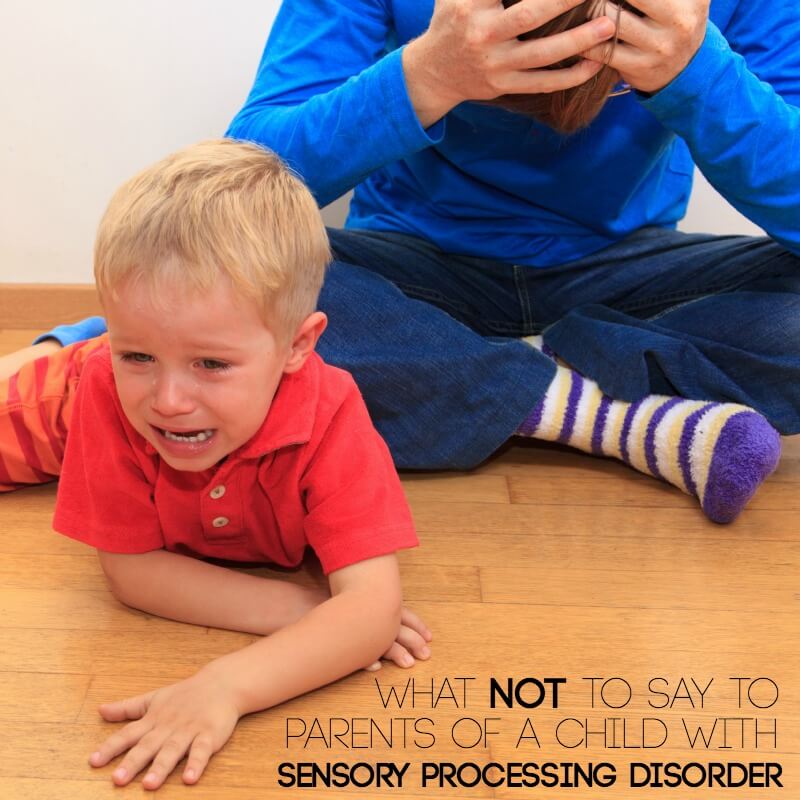
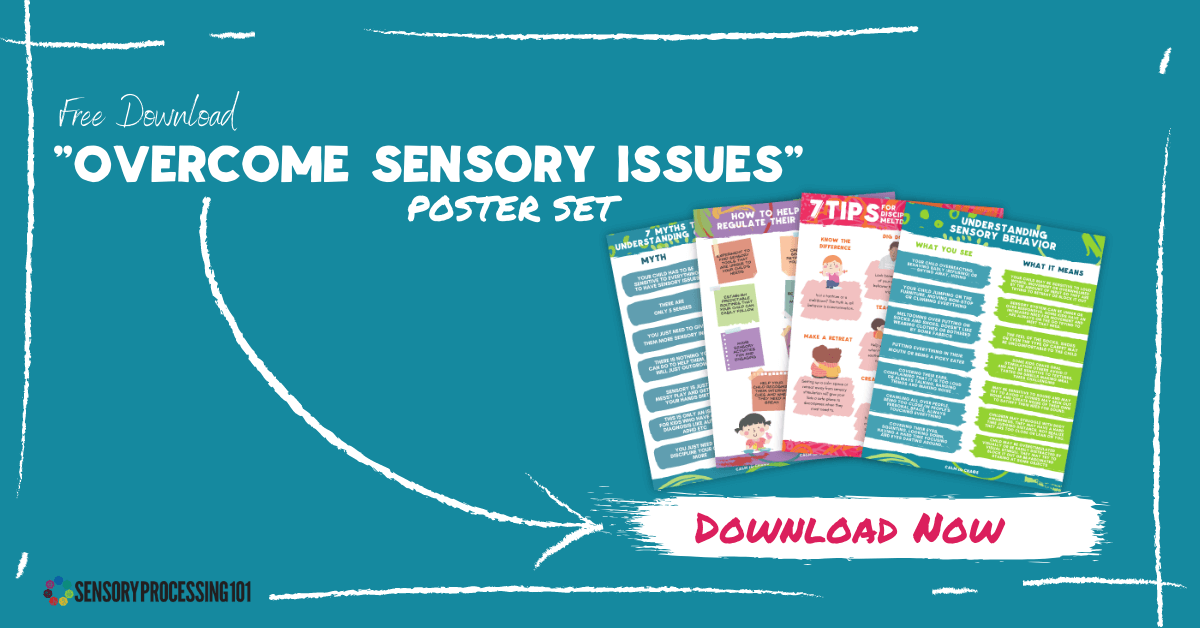





Rachel – You just KEEP GETTING BRAVER AND MORE CLEAR!!!!!
Thanks for this lovely post!
good luck with the book, girl!
Pingback: How to ROCK at Parenting a Child with SPD » My Mundane and Miraculous Life
Thank you for this. I do worry about my 9 year old daughter and how she’ll navigate the world, but I realized the other day, I don’t worry any less about her 12 year old neurotypical sister. 😉 They’ll each have their challenges, as we all do. I appreciate your work, and I’m glad to find you.
Thank you for sharing your personal story about growing up with spd even though you didn’t know what it was at that time. My 6yr old son has it. I didn’t know he had it till he started kindergarten at a new school. It’s been very difficult but it’s slowly improving I’m working to get him OT outside of school. He will have OT, Speech therapy, at school but it takes 60 days for all the assessments to be completed. He’s had less meltdowns since I did a play date with one of his class mates and also started him on magnesium citrate supplements along with daily vitamins, omega, probiotics and a low gluten and low dairy diet.